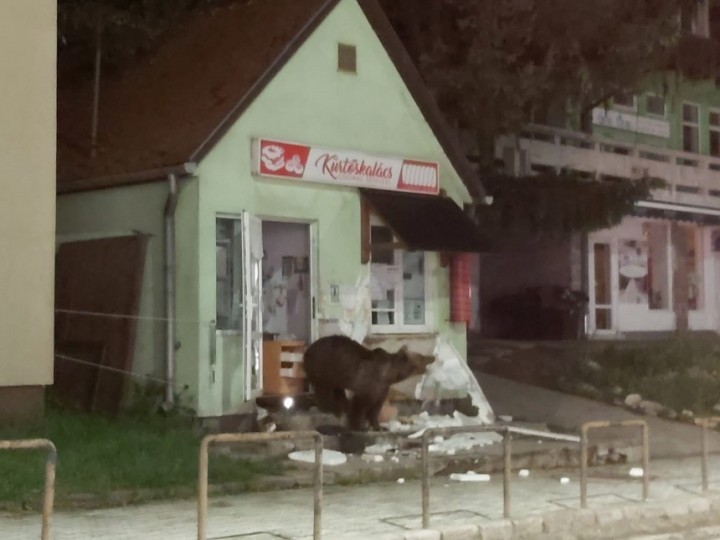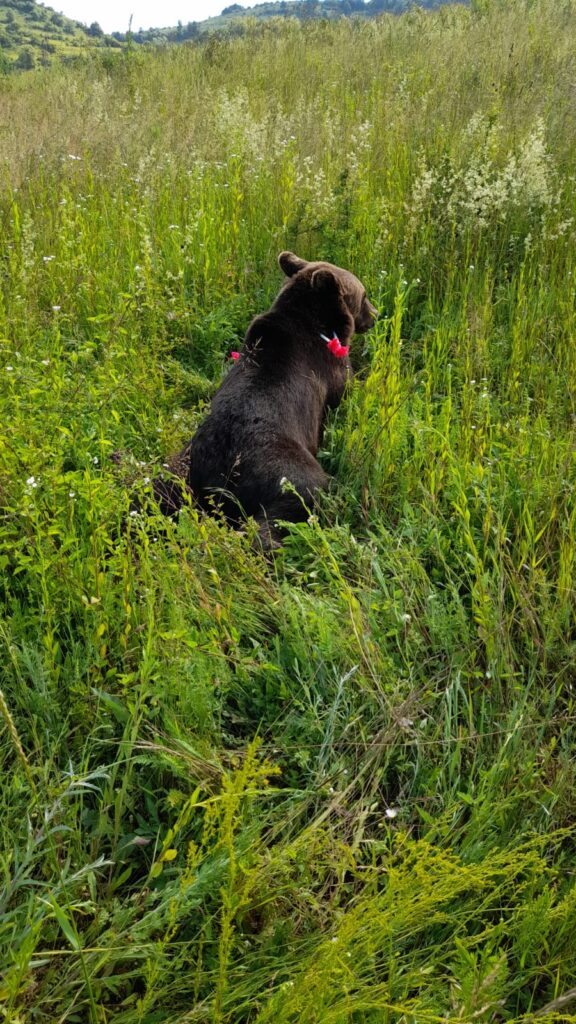Human intervention in the bear habitat can no longer exclusively explain the increase of incursions of the big game into inhabited areas, but the excessive increase in bear population can, said Romanian Minister of the Environment, Water and Forestry Barna Tánczos. Due to this, Tánczos announced that the ministry is working on a draft law, which would allow the immediate removal of dangerous bears, by shooting or transferring the wild animals within a maximum of 24 hours. The decree would be approved in July, Digi24 reports.
When asked what led to the increase of the bear incursions and what the animals might need to avoid inhabited areas, the minister said that he doesn’t think the big game needs anything.

“There are areas where their habitat is untouched, where people did not use local solutions, like poaching or poisoning, and did not set up traps, and exactly in these zones, where the forest is intact, the number of attacks is increasing. I think no one can demonstrate that in a county where there have been more than 1,000 bear attacks in the last five years, the area of forests cut down or the amount of timber exploited grew by 10 times. This argument does not stand anymore, we see day by day that the bear population is growing naturally where there is no human intervention,” Barna Tánczos said on Digi24.
The minister added, the bear species is on the top of the food chain and the big game feels very comfortable in the forests of Romania, so their population is growing each year.
As the minister explained, the number of calls reporting the presence of a bear on the 112 emergency number has reached almost 6,000 between 2016 and 2021, and by the end of 2021, it might have grown tenfold compared to 2016. “Just in the first five months of 2021, there were 957 emergency calls. The bears have killed several thousand livestock. Statistics show that these [incidents] happened at a time when human intervention was decreased to minimal,” Barna Tánczos said. “We must face reality, it would be a mistake to deny the facts,” the minister added.


Digi24 mentioned as an example that villages in Argeș County have suffered from regular visits by the wild animals. The villagers are desperate because the authorities do not do anything to protect their farms. As they explained, they work half a year to feed the livestock for winter, but in vain, as bears eat them during summer.
But bear attacks represent a great danger in other parts of the country as well. At dawn last Friday, a mother bear with cubs attacked a 54-year-old man at a farm near Románandrásfalva (Săcel in Romanian) in Hargita (Harghita) County. The man was brought to the ER in Székelyudvarhely (Odorheiu Secuiesc) with numerous head, neck and chest injuries. The victim’s chest injuries were found to be life-threatening, so he was transferred to the Csíkszereda (Miercurea-Ciuc) County Emergency Hospital.
He was in surgery for six hours: He suffered multiple internal injuries, including to his left lung and several broken ribs; multiple cranial and orbit fractures; and lacerated skin on his head and face. Seven doctors and 15 nurses performed the procedure. The man is now in stable condition, Hargita Népe reports.
“We have prepared a comprehensive package of proposals, which unfortunately have not yet been transposed into law, but I am confident that the RMDSZ [the Democratic Alliance of Hungarians in Romania] will have the strength to do this because human life is in danger in Hargita County. Thank God, we have a well-prepared hospital with a very good team of doctors and assistants who can do their job if there is a problem, but we want to avoid having to hold press conferences on bear issues here in the hospital yard. That is why we are still waiting for and demand that the measure that we have proposed is adopted,” Csaba Borboly, president of the Hargita County Council, said at a press conference after the attack.

Csaba Borboly also added that bears are not disappearing in Romani; in fact, their numbers are growing, they are overpopulated, so the government needs to find specific decisions and tools for a solution that is acceptable for everyone. “We must achieve that the conflict between bear and human return to the limit of tolerability,” he stated.
“It is the duty of the state and the government to protect its citizens. Immediate action should be taken in emergency situations. At the moment, the goal of the ministry is to save human lives, as the bear attacks have multiplied. That is why we are preparing legislation that will make it possible to remove dangerous wild animals — by tranquilization or by shooting — in a much shorter time than now, in 24 hours. This would allow for authorities to intervene immediately,” Tánczos Barna announced on Friday on Digi24.

The minister also said that this law would complete the preventive procedure currently in force. According to current legislation, human interference was limited to preventive actions, while immediate intervention was not allowed.
“This immediate intervention would mean that within 24 hours of reporting a bear attack, a group of gendarmes and hunters must remove the dangerous animal, following a very detailed procedure, taking into account the severity of the situation. If a bear enters areas inhabited by humans for the first time, they must try to drive the big game away. If a bear shows up on multiple occasions in the settlement, it can be anesthetized and transferred from areas inhabited by humans to the wilderness. If the bear is dangerous, aggressive and attacking, the solution is to shoot it,” Barna Tánczos summed up the new draft law.
The minister stressed that immediate intervention and prevention must both be addressed in the solution: The natural habitat of the bear must be protected, the safety of biodiversity must be sustained, and agricultural areas must be secured. The last is possible by creating buffer zones next to the forests, with plants loved by bears planted in these areas.
Title image: Bear in the city center of Tusnádfürdő. The animal had an appetite for local cake, kürtőskalács. Photo: Hargita County Gendermarie